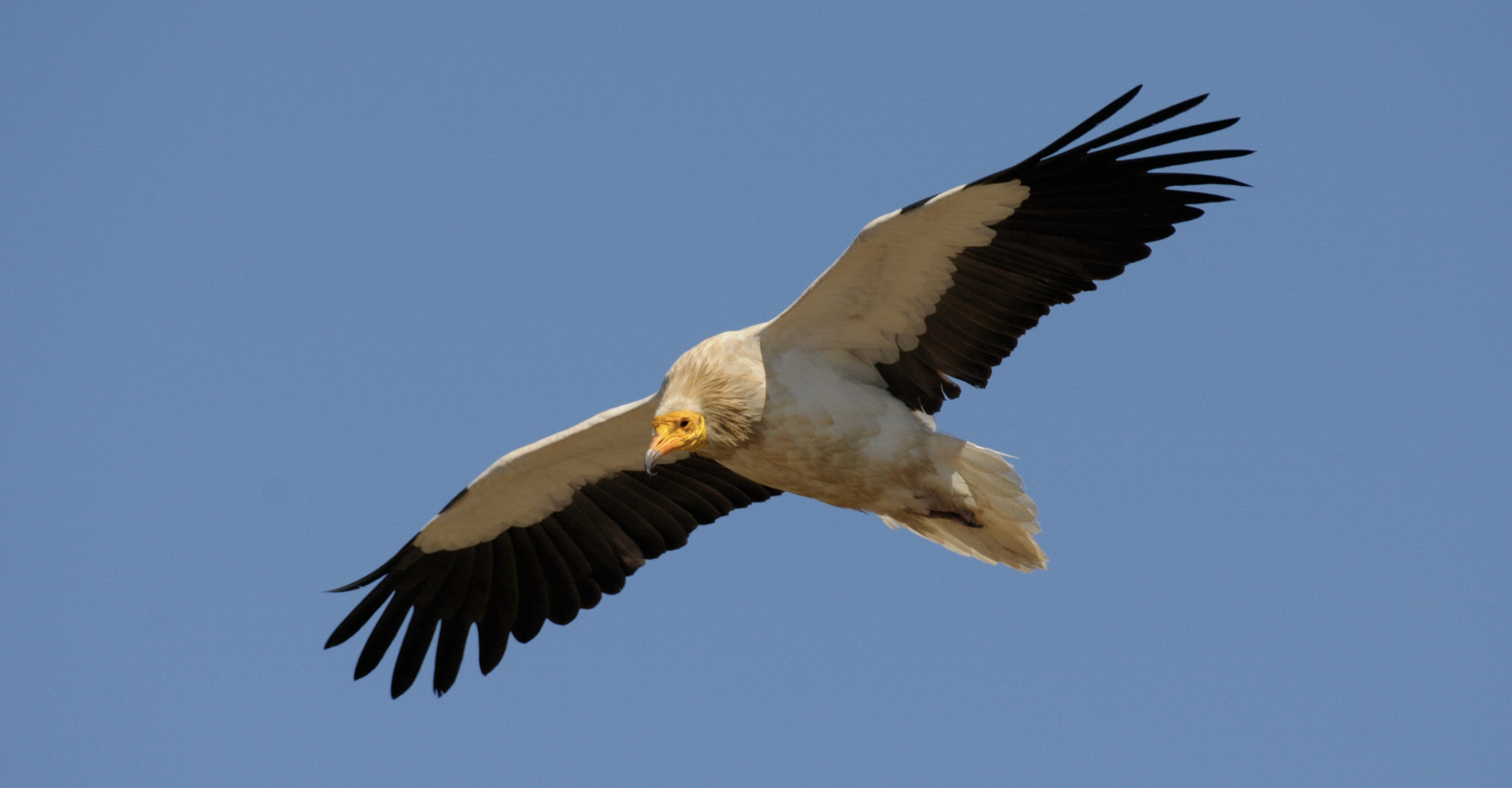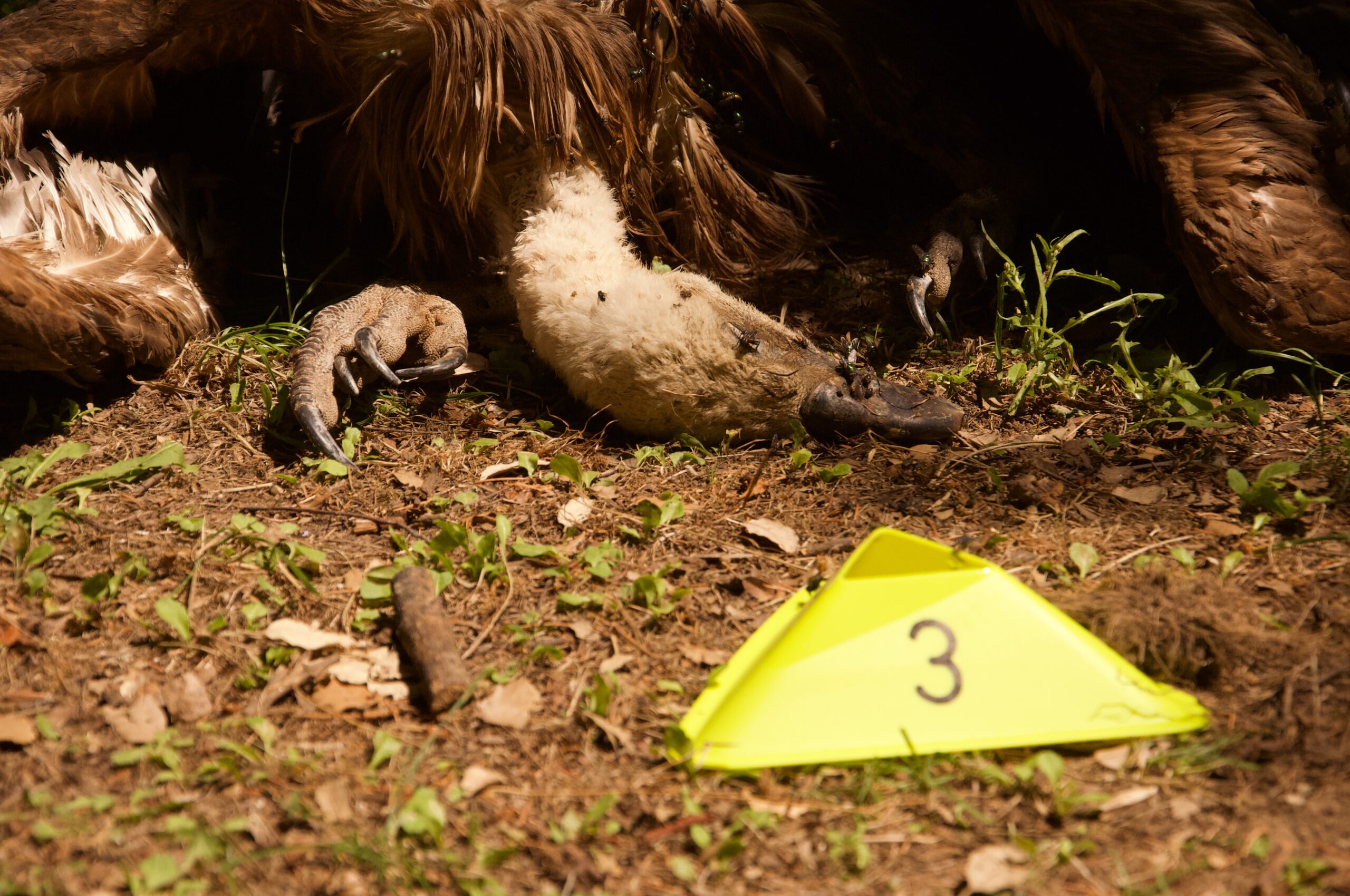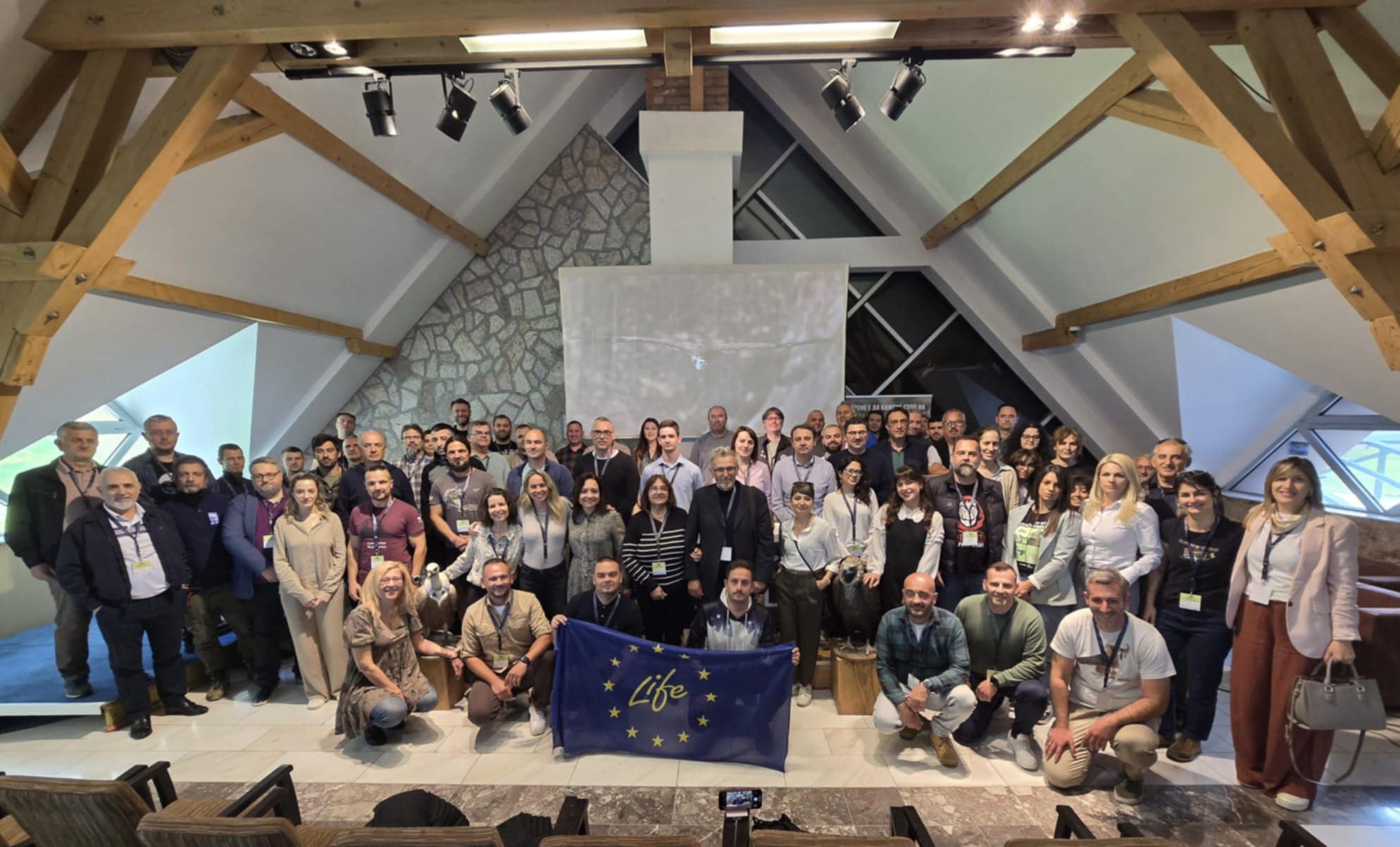
The latest poisoning incident in the Canary Islands killed two Egyptian Vultures that were a pair that laid a clutch this breeding season, meaning that it also caused the loss of their eggs. Another female Egyptian Vulture who also laid a clutch was poisoned and left in critical condition, but, she is recovering now. The Egyptian Vulture in the Canary Islands is an endemic subspecies and considered endangered, and such incidents have a direct blow on conservation of the species
Latest poisoning incident
On 26 April 2020, a resident in Cofete in Fuerteventura alerted environmental agents that there were dead birds in the vicinity. After a thorough search, agents found dead gulls, two dead Egyptian Vultures and one Egyptian Vulture severely poisoned but alive.
The Egyptian Vultures that died were a breeding pair that laid a clutch this year. The poisoning episode is particularly severe because their eggs in the incubation phase were also lost.
The surviving bird called Butihondo is equipped with a GPS transmitter, and the data revealed that the vulture was immobile for three hours before found. It is a five-year-old breeding female who also laid a clutch this year according to reports.
Rescue and Rehabilitation of poisoned Egyptian Vulture

Environmental agents at the scene retrieved the bird carcasses and transferred Butihondo to Oasis Wildlife Fuerteventura for rehabilitation. The life of the vulture was hanging by a thread — it was in a critical condition, weak, inactive and with her eyes half shut. The veterinary team worked at the facility treated the bird with anti-poisoning medication and placed her in the incubator. Thanks to the constant care and dedication of the veterinary team, the bird is slowly recovering.
On 3 May, a week after she was submitted to the recovery centre, Oasis Wildlife Fuerteventura reported that the vulture is doing well. The female now eats and walks alone. Hopefully, she will make a full recovery soon and return to the wild. We wish that next year she will lay a clutch again, which will result in Egyptian Vulture chicks!
11/05/2020
The Egyptian Vulture is getting stronger by the day thanks to the care and treatment of the veterinary team at the facility. She is recovering little by little, and will hopefully return to the wild soon.

Egyptian Vulture conservation in the Canary Islands
The Egyptian Vulture was widespread across the archipelago in the early 20th century, but its numbers drastically declined, and in 1998 only about 21 breeding pairs remained at Fuerteventura. Thanks to targeted conservation actions ever since, the population of the Canary Egyptian Vulture (Neophron percnopterus majorensis), one of the most endangered raptors in Europe, is recovering.
In 1998, an intensive long-term monitoring programme detected the main threats the species was facing. These include human activities such as collision with power lines and illegal poisoning. Between 2004 to 2008, a LIFE conservation project carried out education campaigns to help minimise illegal poisoning and advocated for the modification of power lines to reduce the risk of collision to mitigate these threats. Conservationists have been monitoring the species for the last 20 years, and their analysis indicated that since the project, the survival of Egyptian Vultures has increased, especially for adult and subadult birds. Also, the population almost quadrupled between 1998 and 2018, from 21 to 74 breeding pairs living in Fuerteventura, Lanzarote and Alegranza according to SEO BirdLife’s national Egyptian Vulture census 2018.
Egyptian Vultures in the Canary Islands and Spain

All European vulture species live in Spain, Europe’s vulture stronghold. The Egyptian Vulture has two subspecies in Spain; the Peninsular subspecies is currently listed in the Spanish Catalogue of Threatened Species in the category of Vulnerable and the Canary Islands subspecies in the category of Endangered. Periodic censuses are carried out for these two subspecies by the Autonomous Communities in compliance with the Law on Natural Heritage and Biodiversity. Spain is home to the largest European population of Egyptian Vultures and is a global stronghold for the species, with the latest census estimating 1,490-1,567 pairs.
The Egyptian Vulture is the only vulture species that lives on the Canary Islands. It is an endemic subspecies with 74 breeding pairs living in the three easternmost islands — Fuerteventura, Lanzarote and Alegranza. It is essential to continue to tackle poisoning, collisions with power lines and wind turbines, and to undertake conservation policies that address the abandonment of fields and the extensive decline of livestock to safeguard the species.
Sign up to our newsletter and keep up to date with Europe’s vulture species.



